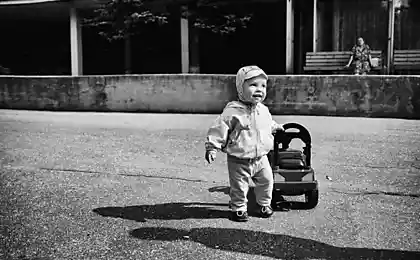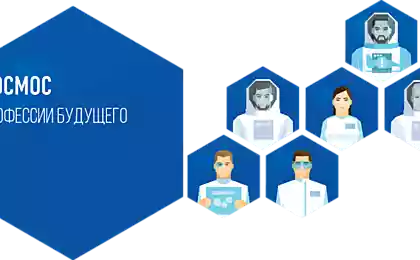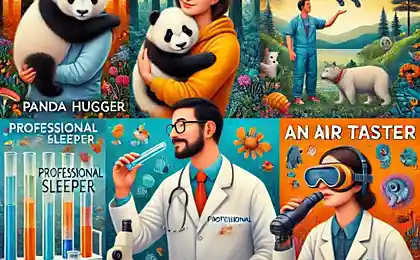849
How to choose a profession that will be relevant through 5-10-15 years?
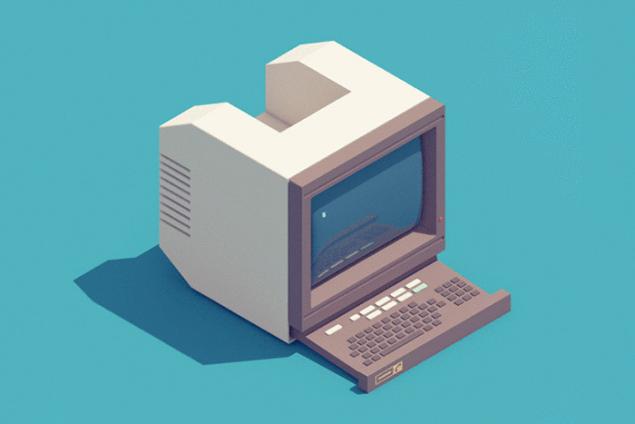
© Guillaume Kurkdjian
How to predict the need for specialists yet? How to choose a profession that will be relevant through 5-10-15 years? The head of the project "Atlas of new professions" Agency of strategic information Dmitry Sudakov tells which areas are most promising and which profession is likely to die before our eyes. T&P publishes a transcript of the lecture, which took place in the framework of "Urban lecture series", a joint project with the Department of culture of Moscow for upgraded cultural centers in residential areas.
On education little is said in schools and in universities, but it wouldn't hurt to change it, because people don't think about it. The most accurate analogy of education is the analogy of the bow and arrow. Education is what launches us into the future. We learn not for the sake of process, and in order to be in a certain point of space and time, located far enough away from us. In the current environment, in school we learn eleven years, followed by a long period of life associated with the University, and as a consequence to get in the future that we want, we should at least have a good understanding. An integral part of what I do is work with the future.
Thus when you say you work with the future, everything becomes funny, and everyone is skeptical to look at you. "Another crazy futurist! Tell us about the singularity and about how work can take over the world!" This is a normal skepticism. In this sense, the future is impossible to work. With the future you can work only way it can be done. In this sense, the methodology with which we work, the so-called "foresight" — this methodology is not so much predicting the future, this is not an attempt to guess what will happen in the future how much future attempt to create and to design. When going to a lot of people who are able to talk responsibly about something, for example, they are able to take responsibility for the activities of the company, or, for example, is a major persons in the ministries who are able to responsibly say "we are moving in this direction".
When they get together, they begin to coordinate their positions, to determine where they interfere with each other when it is necessary to disperse, and in which they can strengthen each other and help. As you consider where they all move together, they begin really to understand what future they go. In this sense, foresight is not only what is called in psychology the so-called self-fulfilling prediction. For example, on Monday we need to be at the meeting at ten in the morning. How much I need to set my alarm Sunday to Wake up on time? Counted how many time do we need to pack, Breakfast, road traffic, and set the alarm for eight in the morning. Why are we doing this? Because you represent the future, in which we are at this meeting at ten in the morning. And then we are taking steps to ensure that in the future to get. To us this seems logical, because we do not think that when we set up service, we are working on its own future, just short segments.
To win forsythia same story works if we start to work with the future more complex systems, such as country, industry, areas. For example, South Korea is called the country of the winning foresight because they are 40 years old are already engaged in self-fulfilling predictions: they planned the development of the shipbuilding industry, they have invested in it 20 years, and now they are one of the leading in the world. In this sense, foresight — the ability to negotiate about the future, to understand what it is like, to understand how all of us together to go there to understand what obstacles we will have. Simultaneously, we realized that in fact any job with a future at the current historical moment is directly connected with education and learning because the world is changing so quickly that the ability to say "I graduated College, school, University, etc., received such a profession, a lifetime will to do" is impossible. Everything is changing too fast, and that means we need to learn every day, actually my entire life, and it should be accepted, as we accept that we need to wash hands before eating. Those who understand this before the others find themselves in the most advantageous position.
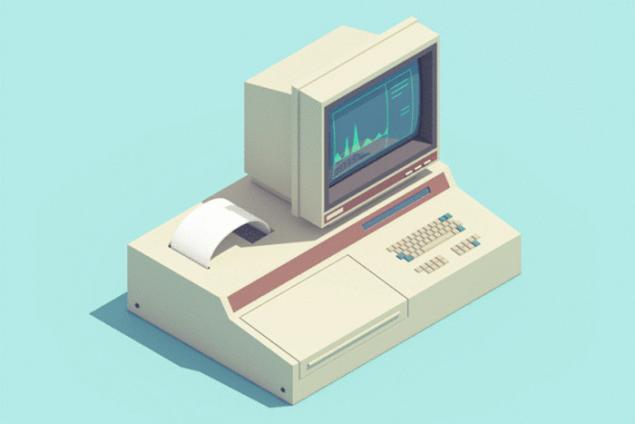
We started to think about such things with a large number of experts in the study for "Atlas of new professions", which was attended by about three or four thousand people. So it was the authors who wrote it, but it was created all together on a large number of foresight sessions, discussions, and so on. It all started with the question of education. One of the functions of education is to prepare personnel for the new economy. The question arises: what are these frames and what is the economy?
Change technologic what we are preparing? In the world there is a growing amount of technical information doubles every two years, and this means that for students beginning their four-year training, half of what they were taught in the first year will be obsolete by the third year. Technology is changing so fast, and what to train students in universities is not clear. What technologies will be useful for future people? We have witnessed how some of the technology died in our memory, for example, a tube TV, but some managed to be born and to die, as, for example, video tapes or pagers. Once they were, and now many people do not know what it is, because we were born after that. And how much money was invested in this area because people believed that it is promising? We need to train people for tasks which are generally not perceived as a problem. We used to think that Miller is a strong guy with calloused hands, in oil stained overalls, he stands at the Barre with a strained expression on his face, grinds on it milling the part. But today Miller is a man dressed in of the; today, Miller is a programmer, the person who programs the CNC machine. He radically changed the tasks and the profession remained the same.
Conquest rinkler accelerating exponential technologies are taking markets faster and faster. How many years did it take to get to 25% market share? Electricity 46 years, the television 26 and the Internet — seven. To take audience of 50 million people Facebook took two years, and radio 38, television 13, the Internet four, iPod or three. Continue this speed will all increase and increase. People start to think that their current job is not what they will do for the rest of life. For 38 years the worker will change professions 10-14 (data for USA 2009). People work less, strive to seek a better life. One in four workers today has experience at current employer less than one year. Over 50% of the people working for current employer less than five years. And it's all a challenge, which we need to try to understand.
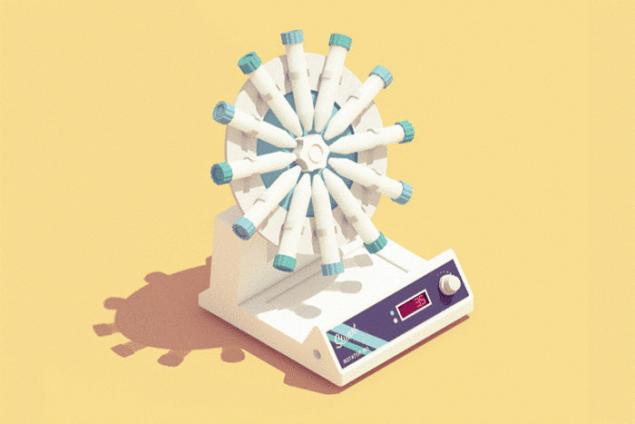
These changes have forced us to think about how we should be, what to do and how to achieve what we have today is a very big gap, after all, all employers with one voice shout: "we take the person after high school, and he did not know how to do it again, need to learn". And if for some uncomplicated profession like Manager, man enough to teach a couple of months, the engineer aviation enterprises are required to teach for two years, and two years to pay him a salary.
Reactive politicaly see that changing approaches to education, if to about the middle of 2000-x years of education there was, on average, it practically gave nothing to the people. We call this "Parking space": imagine that you have to boil the sea water heater. The result is a generation of people refused education in school, universities, doing their own things, because were disappointed. Since the mid-2000s, the government realized that education must be funded, to take best practices from other States to work with them. This is what is called reactive policy, when you have something happened, and you somehow responded. In education concluded our attempts to understand where we need to shoot from a bow, understanding that we need first to determine their own future. Now comes the time when education becomes an important element of the company's own future.
Why is foresight, not a survey of employers? Why today it is impossible to prepare specialists as prepared always? Why can't we say like they did in the Soviet Union? Then said: "we need 20 thousand engineers, 3000 here, 500 people to send to Moscow, someone in the Urals, etc". Early life cycle technologies in now obsolete industries, it was possible to predict for many years ahead what's coming and how much you will need specialists. But today life cycle of technology is very reduced, technology time to be born and die in a very short time.
Obsolescence OBRAZOVANIJA we have trained professionals? Before we solve some problem, we are looking for necessary for this business specialists should be trained. We create the curriculum, and only then are trained professionals. This long cycle takes about seven years, during which time all obsolete. For example, in the school, come and say: "we need welders". They say, "now welders we have, because we shut down the program: the demand was not", and then quickly things unfold and after two years release a certain number of welders. But those welders are useless, because companies welders needed two years ago. What makes a University? He says, "well, if we are not wanted, then we close the training of welders". What happens in a year? Them people come and say: "where's the welder?". This is because of the all too quickly changing, and they are not ready, they are not able to predict what will happen in the future.
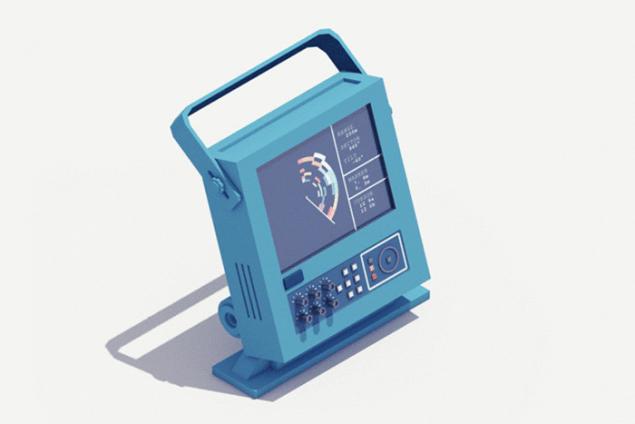
The future will be what you imagine. And you need to think about a promising future, because if you think that everything is bad, we will never build a future that will be good; you need to be realistic and understand that there are system limitations. If at the beginning of the emergence of Russia, it was the story of the mining industry in 2010 began to happen a shift of interests in the infrastructure sectors: electricity, transportation of various kinds. And now we see that these people have a changing interest, they are interested in breakthrough technologies: new medicine, new agriculture, new biotechnologies, which are used everywhere, different engineering approach.
Globalization rinkaby see that the world is becoming more global, and almost any product of which we can conceive, is produced in many countries. If we talk about slightly more complex product like a smartphone, the iPhone was invented in California, assembled in China, but he uses hundreds of technologies that were invented in different countries. If to speak about complicated things like space rockets or Boeing in their production involved no less than 70 countries.
Konkurencyjnego almost anyone able to take a risk, able to think and to do something, maybe become a competitor to a large company, because it will be able to find a small niche and work with it. 20 years ago it would be nobody knew, but today there are a lot of tools in order to get on the consumer.
The blurring of boundaries between trasmital, for example, one of the most breakthrough topics in the world today is biotechnology. They emerged when the engineers began to come into medicine, to bring their approaches, something that had never been before, so the industry has changed dramatically. At the intersection of different industries there are some interesting and important things when people are able to transfer solutions from one industry to another. Someone says: "let's print the joints" 3-D printer and begin to print them joints.
Sustainability myshlayevsky moment, which in Russia is perceived bad enough — is that we actually live in a small world, despite its seemingly large size. People throw the garbage washed into the river, the river throw him in the sea, the sea connected with the ocean, and for there thus, giving the ocean a few points where it accumulates. And in the Pacific ocean somewhere between Japan and America there is a zone called "the Pacific garbage spot", which is currently hundreds of millions of tons of garbage. It cannot be seen by eyes because it frayed in microparticles and eat fish. People need to think about the fact that if we start something, we must understand that we are going to do in the future. When we did, for example, a chair we must consider how to dispose of when this chair will break. In Russia, for example, there is no disposal of aircraft, their huge mass not recycled. When we talk about ecological thinking, i.e. the ability to understand large processes that are behind this, we mean a world in which we live and our children.
Knowledge of languages and cultureso we have to cooperate with the larger world, it means we need to speak different languages. People who know the languages much better arranged than people who do not know them. Besides languages, we must understand some of the cultures we work with. Knowledge of the intricacies of cultural differences and language revs more than knowledge of the language, it is respect for another person who is near you. Due to the fact that we have blurred the boundaries among industries, it is impossible to be focused on one subject, have sought to expand their knowledge. Now there is a demand for professionals who have knowledge in different industries.

In comandeer becomes too complicated, and we must learn to work in teams, that only begin to teach in schools, and people still know little about exactly how to teach it, and how it can be assessed. How to evaluate teamwork? Who to put in the diary assessment? It is difficult, but necessary, because the most difficult thing we can have is our collaboration, cooperation, co-creation, when the principle of work is based on horizontality, where there is no primary and all are equal.
Torontogospel to do in the future in which we do will displace the robots, is still very important, you need to understand that creativity in our work to displace the computer never will. Under creativity means not necessarily writing music, poems, paintings, although it is also very important, and these skills need to shake. You need to learn to work with large volumes of information are increasing, and it is impossible to remember. We need to learn first to seek this information, and secondly to handle it.
Language programmirovanije to understand that because we live in a world full of programmers and software solutions, we need to learn to speak their language, because if we can't put them to task, or put it so that they will not have to understand, they will do bad work, or will do the work that will put them to the man who knows how to speak one language. Because it is important for children to learn programming languages.
Samoregulyatsiya to always maintain a willingness to learn, to develop yourself and learn new things. And it is very important that we call self-regulation skills. It is the ability to be in the right mood to do the work. It is the ability to relax so to be able to learn to sleep, learn to concentrate, to learn to have fun, when you like it. Control your own body you have to continuously train.
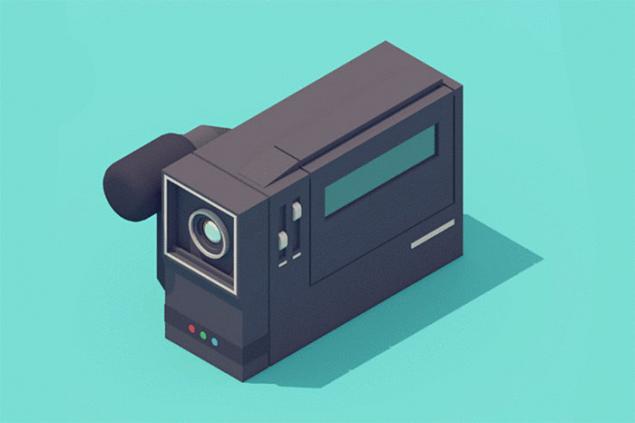
You need to be able to learn in their activities to look at the picture not as narrow, and as part of a larger process, and to understand what is the process? To understand why you are at work carry out a specific operation or set of operations, what you're dealing with these people. If you do not hold these complex systems, then at some point I want to say: "Oh, I like that."
Profession-pensionaries die, and we are in his Atlas in 2014, he predicted that the agent would soon become a profession-now retired. Us argued a lot, saying that the profession is as relevant as ever. But the profession-pensioner — it is not a dead profession, and the profession, the demand for which is dropping. In the summer of 2014 the market of travel agencies in Russia imploded: half of the companies in the market has ceased to exist. The people who argued with us were now looking for work. Well, who dies? American scientist David Outer of Massachusetts, analyzed 25 years of data and drew particular curve. We see that employment has grown on the difficult and easy level of competence. And average people are becoming less and less. In this area people salary is already so big that these jobs can be automated. For example, with the advent of Internet banking, we almost stopped going to the banks. Accordingly, such a profession like Bank teller, is gradually disappearing. Need programmers who will support the Bank in the Internet. However, the chef cannot be undone. Be professional in your region. In the creative professions and the profession will always be in demand.
What you need to do in order to feel comfortable? You need to learn to work in teams, need to learn to work with different teams including able to speak another language. You need to work with large volumes of information, you need presentation skills, presentation of ideas, you need to learn to think systemically, you need to learn — to learn all the time, and take care of yourself, to be able to relax. published
P. S. And remember, only by changing their consumption — together we change the world! ©
Source: theoryandpractice.ru
As corruption is changing the world of microbes
We have a serious problem — a total intolerance of a slow ride
